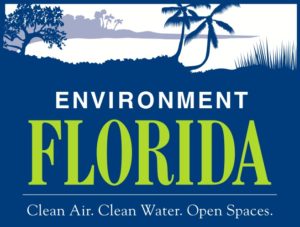
Numerous policies are available to reach ‘Destination: Zero Carbon’
The transportation sector is the second-largest source of global warming pollution in Florida. A new report from Environment Florida Research & Policy Center and Frontier Group describe how Florida can build a zero-carbon transportation future – all while cleaning our air and creating safer, healthier communities.
Destination: Zero Carbon: Three strategies to transform transportation in America looks at the factors underlying high transportation emissions, and proposes new policy solutions. Americans drive more than 10,000 miles a year on average, often in inefficient gas-burning vehicles. Poor public transit and unsafe conditions for walking or biking leave many Americans with few good low-carbon transportation options.
“Florida’s transportation system is due for a zero-carbon upgrade,” said Ryann Lynn, Climate and Clean Energy Advocate with Environment Florida Research & Policy Center. “With clean, electric cars and buses, and safe streets for walking and biking, we can take a big bite out of America’s contribution to global warming. This report shows how it can be done.”
The report outlines three goals that are achievable with proven policies and existing technology. These objectives can help eliminate emissions from cars and light trucks and contribute to America’s transition to a zero-carbon transportation future. They are:
-
All new light-duty cars and trucks sold after 2035 should be electric vehicles (EVs).
-
U.S. transit agencies and school districts should replace all transit and school buses with clean electric buses by 2030.
-
The U.S. should at least double the number of people who travel by foot, bike or transit by 2030.
“Global warming demands that we set ambitious goals to get off fossil fuels – including ones for our cars and trucks,” said Gideon Weissman, Policy Analyst with Frontier Group and co-author of the report. “Luckily, we now have the technology and the tools to meet those goals – from advanced zero-emission electric vehicles to proven policies that can help Americans drive less and live more.”
Currently, the Florida Department of Environmental Protection is accepting proposals to utilize funds from the Volkswagen settlement. This grant opportunity will allocate funding to projects centered on increasing electric vehicle charging infrastructure. Applications are due to the Department’s Division of Air Resource Management by April 7, at 5:00 p.m.
“Florida should step up to climate challenge and re-imagine transportation,” said Lynn. “From Pensacola to Miami, we can envision a better, carbon-free way to get around. It is a future that we must achieve if we want to make our state a healthy and clean place for future generations.”
Environment Florida Research & Policy Center is dedicated to protecting our air, water and open spaces. We work to protect the places we love, advance the environmental values we share, and win real results for our environment. ‘For more information, visit environmentfloridacenter.org.
